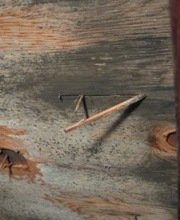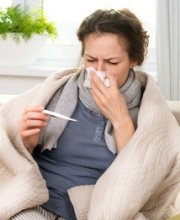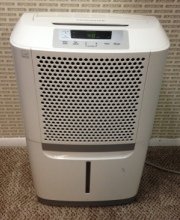Find a Mold Specialist Now
Click or Call, Toll-Free 24/7
Aspergillus Mold in The Home
Aspergillus mold can be found both indoors and out. Many people breathe in aspergillus spores every day with no ill effect. However, exposure to large amounts of aspergillus can lead to numerous health problems, some of which are quite serious, especially in people with weakened immune systems.
What Is Aspergillus Mold?
Mold is a type of fungus. Aspergillus is only one of thousands of strains of mold.
Indoors, aspergillus is often found in heating, ventilation and air conditioning systems, though it can be found in other places, too. It is also often found in home that have been flooded or otherwise had significant water damage.
Like other types of mold, aspergillus can cause significant damage to your home over time. It can also lead to health problems when the microscopic mold spores are inhaled.
Health Problems Caused by Exposure to Aspergillus Mold
Aspergillus-related health problems are so common that there is a medical term for them – aspergillosis. Many people are allergic to aspergillus. Aspergillus frequently causes respiratory problems and infections, and it can cause other types of infections as well.
While people with pre-existing respiratory problems and weakened immune systems are most susceptible to mold-related health problems, aspergillosis can affect even those with healthy immune systems. They typically experience less severe forms of the condition, however. They often develop chronic sinus infections, ear infections, eye infections or even infections of the fingernails or toenails. These infections are usually not too serious, but they can take a long time to resolve even with treatment.
In people with weakened immune systems, aspergillosis is often much more serious. What begins as a lung infection can spread through the blood to other organs, including the kidneys, heart and brain (1). These infections can be life-threatening without prompt treatment.
If you have health problems you think might be caused by aspergillus, see your doctor as soon as you can. Your doctor may order blood tests, a chest x-ray, a skin sensitivity test or other medical tests to help make the diagnosis. Let your doctor know if you’ve been exposed to mold in the home or if you think mold might be causing your symptoms, even if you’re not sure what strain of mold it is to which you’ve been exposed.
Treatment will depend on how exposure to aspergillus has affected you, but may include antibiotics or other medications. In severe cases, hospitalization and intravenous antibiotics may be required.
Not only can exposure to aspergillus make people sick, it can also make pets sick, including cats, dogs and birds. If you think aspergillus might be making your pets sick, get them to your veterinarian as quickly as possible.
Removing Aspergillus from You Home
In order to recover from mold-related health problems, you’ll need to remove the mold from your home. Medical treatment for aspergillosis is unlikely to be effective if you continue to be exposed to aspergillus mold. While some people prefer to remove household mold themselves, it is a good idea to avoid further contact with aspergillus if you are suffering from health problems related to aspergillus exposure.
If you have a small amount of mold in the home, covering an area less than three feet by three feet, a friend or family member who doesn’t have mold-related health problems or other respiratory disorders can probably clean up the mold for you. They should take precautions to avoid inhaling mold spores, like wearing N-95 respiratory masks and gloves while cleaning up the mold. The Environmental Protection Agency recommends calling in a professional if you have a large amount of mold in the home, no matter what type of mold it is.
The EPA also recommends calling in a professional if you have mold in your heating, ventilation and air conditioning system. Remember that is a common place to find aspergillus, so if you have aspergillus in your home, you should at least have your HVAC ducts inspected. If there is mold in your HVAC ducts, you’ll need to have a professional clean them.
Note that aspergillus is also common after a home has been flooded and that the EPA also recommends calling in a professional for assistance with mold removal in homes that have been flooded.
For Help with Mold Removal
If you need help with mold removal, or just want some advice on how to proceed, we recommend scheduling a free consultation with an experienced mold removal professional. To find qualified professionals offering free in-home consultations in your area, just follow the link provided.
Return From Aspergillus Mold To Our Main Mold Types Page
(1) Support for People with Aspergillosis
Privacy Policy Terms and Conditions Accessibility Do Not Sell My Information Disclaimer Contact Us





